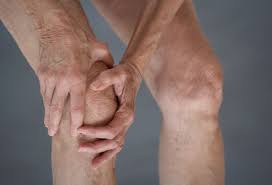Get best natural remedies for knee joint pain Ayurvedic treatment at Astang Ayurveda.
Knee Joint Pain Ayurvedic Treatment
Osteoarthritis Knee

Osteoarthritis of knee includes two types of pathogenesis which include “degeneration of bone and synovial fluid in knee” and inflammation of tendons and ligaments those uphold the knee joint. Degeneration occurs due to trauma, injury, chronic arthritis and above all aging. The second type of osteoarthritis in knee takes place due to relative over weight or trauma and injury. Relative overweight means the ratio between the tone of the ligaments and tendons around the knee joint” and the weight of the patient. A small example- An overweight person weighing 90 kg is a second type OA knee patient. A person weighing 45 kg also suffers from the same disease? This is because of the low tone of the ligaments and tendons.
Signs and Symptoms of Osteo Arthritis Knee:

- Pain
- Swelling
- Redness
- Temperature
- Immobility/ Restricted movement
- Crepitation sound on manipulation of patella
- Pain in outer ligaments or tendons on standing up or sitting down. More prominent during stepping up and down the stare case.
Ayurveda Panchakarma Treatment for Knee Joint Pain
Ayurveda Panchakarma treatment is the best treatment available to manage the osteoarthritis of knee. The Ayurvedic medicine and Ayurveda panchakarma not only prevent the degeneration of the knee joint but strengthen the ligaments and tendons. Normally in modern medicine there is no such good medicine to tone the ligaments and tendons. At the other side Ayurveda does have a good number of herbs which tone the ligament and maintain the actual gap inside the knee joint. Specially for the ligament related osteoarthritis Ayurveda Pancha karma is the best treatment. Knee joint pain treatment
Is Knee replacement Essential?
Simply No except the case where the knee joint is frozen due to excessive degeneration and excessive deposition of osteophytes. All the knee joint arthritis can be very well managed by knee joint pain treatment in Ayurveda without any surgical interference. Surgery should only be indicated in excessive degeneration and osteophyte deposition. Even also Knee replacement is not a very successful treatment specially in case of overweight people. After some years it fails? Then what is the alternative?
OUR SLOGAN:
WE REPLACE KNEE REPLACEMENT.
Written By: Dr A P Nayak on 22nd February 2016.
Related quick view:
- Knee Joint Pain Cause
Knee Joint Pain Treatment in Ayurveda
For knee joint pain Ayurvedic treatment, take appointment with our Dr. Ambika Prasad Nayak get cure from Knee joint pain, Osteoarthritis and Rheumatoid arthritis.
If you looking for Knee joint pain Ayurvedic Treatment, you can Contact our Astang Ayurveda hospital at Bhubaneswar, India.
For inquiry, Call us;
or Mail us;
Get Directions to Our Location on the Map
